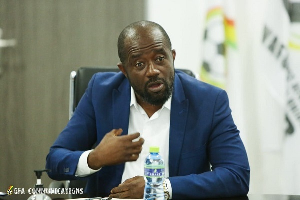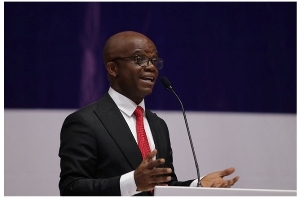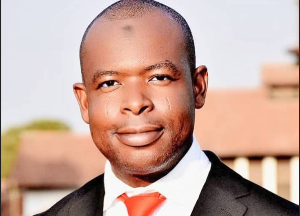A strong message from a state gender-desk officer has gone to women who are being molested in their marriages that it is better to stay alive than to stay abused.
In several African communities, lots of women live with life-threatening and regular domestic violence in silence.
This, among other reasons, is because they do not want their children to taste a broken home; they want to remain as true as possible to the for-better-for-worse-till-death-do-us-part marital vows they once made before witnesses; some are tied to the hope that their abusive partner will change someday, and for fear of what society (including their own family members) might say or do if they walk out on their conjugal bonds.
Even some communities still see it as undeserving of public attention and intervention when women suffer abuse at the hands of their husbands— regardless of the variety, the frequency and the dosage of the maltreatment— largely owing to some centuries-old inherited practice or borrowed belief that the couples the deities have joined together no in-laws should put asunder no matter the state of affairs.
But a gender-desk officer in Ghana, Emmanuel Nartey, told a gathering of women and girls, whilst some men and boys also listened to him in the crowd, that it was better for women to call it quits than to remain and die in abusive ties.
“A lot of women suffer a lot through gender-based violence. It’s better to survive than to die in a marriage. You are in a marriage and you are being beaten. If you say, ‘I love my children, I love the man’, and because of that, you are there, finally you will die. And remember, when you die another woman will come in. It is better to leave than to be in an abusive marriage. It has been like a norm. When your husband beats you, it’s like it is normal. It has become part and parcel of society.
“And you, the woman, you dare not mention it because the family would condemn you for reporting it. Sometimes, when the woman is beaten and she goes to the family, the family would push her back. They would say, ‘Go back to your husband’s house’. It is better to take your kids and go and take care of them than to die and leave them behind. You can’t tell what will happen behind you when you are gone,” said Nartey, who works at the Gender Office of the Bongo District Assembly.
Some girls are fleeing to the South to avoid child marriage — PAYDP
The gender-desk officer gave this advice at a public forum organised by Purim African Youth Development Platform (PAYDP) at Anafobiisi, a suburb of the Bongo District, as part of some sensitisation activities being carried out by the civil society organisation to address a record spate of child marriage and teenage pregnancies that has plagued the deprived district over a long period.
Sponsored by the United Nations Population Fund (UNFPA), the event also had traditional rulers, state civic educators, basic-school teachers, opinion leaders, social-welfare officials and health professionals in attendance. A PAYDP representative, Millicent Ocloo, said similar end-child-marriage roundtables had been undertaken in some other communities in the district— including Goo, Gowrie, Kodorogo and Soe— with Dua next in line after Anafobiisi.
“We are sensitising the entire district on ending child marriage, especially our girls who run from the north to the south in search of greener pastures. When we engaged the girls, most of them said they decided to move to the south because they were being given out in marriage. We are sensitising our fathers, our mothers, our girls and our boys to put an end to child marriage,” Ocloo stated.
The UNFPA Country Representative in Ghana, Niyi Ojuolape, in a speech presented on his behalf by a UNFPA Programme Officer, Mutaru Goro Iddrisu, described Ghana’s young girls as the future of the country and stressed the need to guard and to guide them in the approved manner.
“We need to protect our young girls. That is our future. Our young girls are our future. And we must protect them by giving them a good education, giving them moral education and letting them know the dangers of teenage pregnancy and child marriage. Child marriage is not good for their health, it’s not good for their life, it’s not good for their future, it’s not good for even the children they are going to give birth to and it’s not good for their families,” remarked the UNFPA Country Representative.
The UNFPA’s Programme Officer also urged victims of Sexual and Gender-based Violence (SGBV) and individuals who knew anyone who had suffered such violence to call the UNFPA’s Orange Support Centre using this toll-free line 0800111222 for support.
647 Teenage Pregnancies recorded in Bongo in 2020 with 150 so far in 2021— GHS
At least 647 teenage pregnancies were recorded in Bongo in 2020 and 150 adolescent girls got pregnant within the first quarter of 2021 alone. A representative of the Ghana Health Service (GHS) and midwifery officer at the Anafobiisi Health Centre, Samata Adogbongo, disclosed these figures at the forum.
The turnout at the event was widely hailed as a big success. The Assemblyman for the Anafobiisi Electoral Area, Albert Akanmiim Agariga, to whom the success was generally credited for mobilising the members of the community far and near to the venue for the forum, got multiple pats on his back from the UNFPA, the PAYDP and the other special guests present for demonstrating what they unanimously described as a great organisational skill.
Some opinion leaders who attended the event urged the youths present to emulate Agariga’s passion for progress and his dedication to the development of the community.
“I have been an assemblyman for barely a year and a half. I have been able to link up with the Births and Deaths Registry to organise free Births and Deaths certificates for all children aged one year and below. Thousands of children had the opportunity to register. It was done at my own cost. Subsequently, I was able to link up with health service providers who came from London to support all pregnant women in the entire district with a free medical checkup. That free medical checkup was not limited to my electoral area alone.
“When it comes to road, within the one-and-a-half period, with the help of the assembly and the DCE (District Chief Executive), we’ve been able to construct about four roads— new ones, connecting various communities. When it comes to water, within even a week, just last week, we drilled about four boreholes. The DCE also gave one borehole from GNPC (Ghana National Petroleum Commission) to my community. When you talk about health, last week, I organised a free general health screening exercise for members of my community,” Agariga told the press at the event ground.
General News of Tuesday, 1 June 2021
Source: dailymailgh.com
Better to survive than to die in a marriage – Abused wives warned
Entertainment












